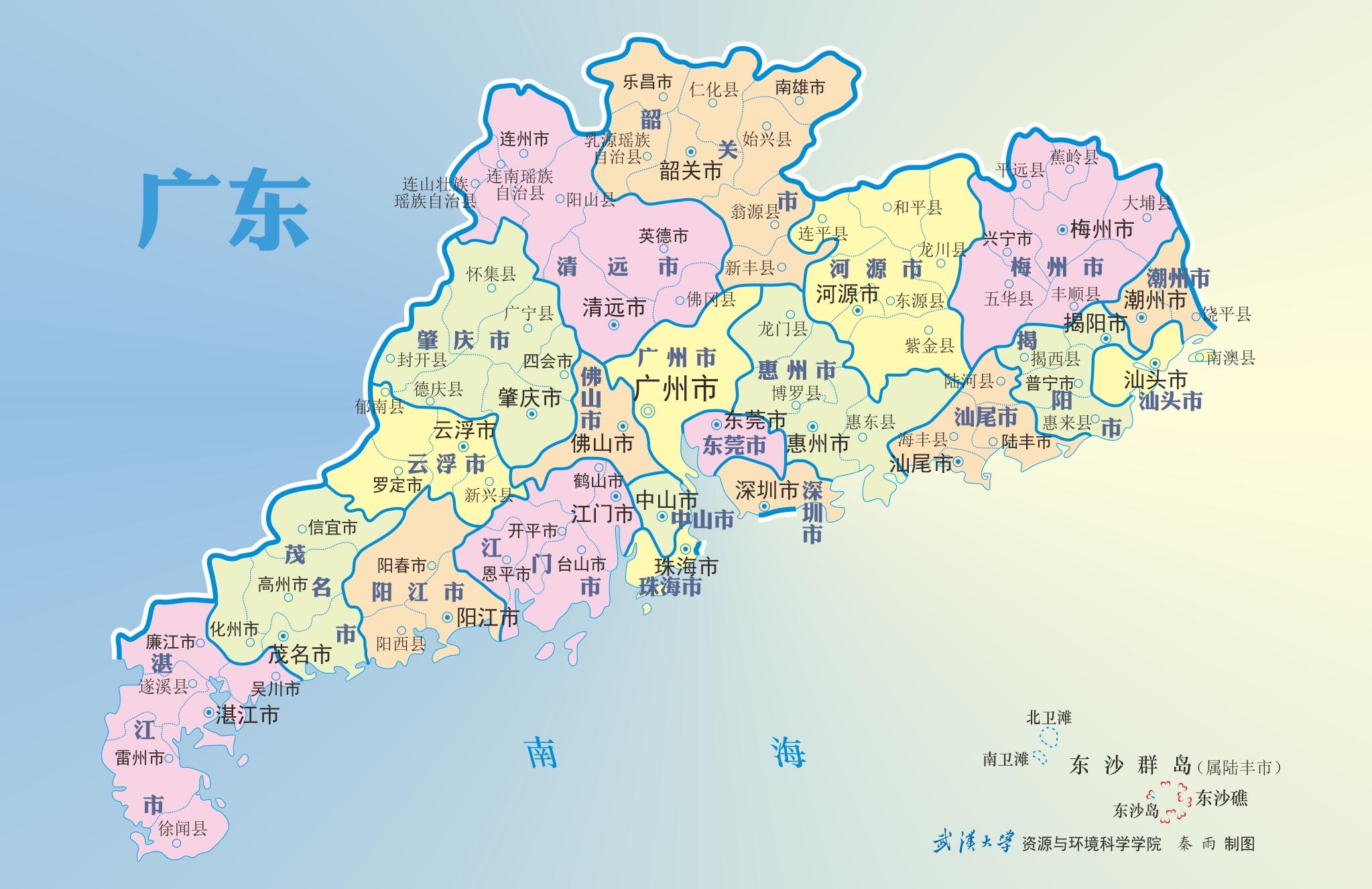More languages
More actions
No edit summary Tag: Visual edit |
No edit summary Tag: Visual edit |
||
| (One intermediate revision by the same user not shown) | |||
| Line 1: | Line 1: | ||
{{Infobox settlement|native_name=广东省<br>guǎng dōng shěng|name=Guangdong Province|settlement_type=Province|official_languages=[[Mandarin]]|common_languages=[[Guangdong language]]|population_estimate=127 million|area_km2=179725|official_website=http://www.gd.gov.cn/|image_map=广东省.jpg|largest_city=[[Guangzhou]]|capital=[[Guangzhou]]}} | |||
Guangdong province(广东省), a province of [[China]]. With a population of over 120 million, it is one of the wealthier provinces in China. | Guangdong province(广东省), a province of [[China]]. With a population of over 120 million, it is one of the wealthier provinces in China. | ||
== History == | == History == | ||
In 221 BC, [[Qin Shi Huang | In 221 BC, [[Qin Shi Huang|Qin Shi Huang Ying Zheng]] unified northern [[Qin dynasty (221–206 BCE)|China]]. Thereafter he sent 500,000 troops to attack southern China. The aborigines in southern China had a low level of productivity and since then Guangdong Province became part of China. | ||
Due to the distance between Guangdong Province and northern China, the Cantonese language has become quite different from Mandarin. However, due to the existence of ideographic script, the Cantonese people are still closely connected to other Chinese people. | Due to the distance between Guangdong Province and northern China, the Cantonese language has become quite different from Mandarin. However, due to the existence of ideographic script, the Cantonese people are still closely connected to other Chinese people. | ||
| Line 13: | Line 14: | ||
In 1979, three of China's four [[Special Economic Zone]]<nowiki/>s were established in [[Guangdong]] Province: [[Shenzhen Special Economic Zone|Shenzhen]], [[Zhuhai]] and [[Shantou]]. Another special economic zone was [[Xiamen]] in [[Fujian]] Province. [[Deng Xiaoping]] hoped that the establishment of the SEZs would provide experience for China's [[reform and opening up]]. | In 1979, three of China's four [[Special Economic Zone]]<nowiki/>s were established in [[Guangdong]] Province: [[Shenzhen Special Economic Zone|Shenzhen]], [[Zhuhai]] and [[Shantou]]. Another special economic zone was [[Xiamen]] in [[Fujian]] Province. [[Deng Xiaoping]] hoped that the establishment of the SEZs would provide experience for China's [[reform and opening up]]. | ||
[[Category:Provinces of China]] | [[Category:Provinces of China]] | ||
Latest revision as of 12:02, 12 February 2023
广东省 guǎng dōng shěng Guangdong Province | |
|---|---|
Province | |
 | |
| Capital and largest city | Guangzhou |
| Official languages | Mandarin |
| Common languages | Guangdong language |
| Area | |
• Total | 179725 km² |
| Population | |
• Estimate | 127 million |
Website http://www.gd.gov.cn/ | |
Guangdong province(广东省), a province of China. With a population of over 120 million, it is one of the wealthier provinces in China.
History[edit | edit source]
In 221 BC, Qin Shi Huang Ying Zheng unified northern China. Thereafter he sent 500,000 troops to attack southern China. The aborigines in southern China had a low level of productivity and since then Guangdong Province became part of China.
Due to the distance between Guangdong Province and northern China, the Cantonese language has become quite different from Mandarin. However, due to the existence of ideographic script, the Cantonese people are still closely connected to other Chinese people.
In the course of two thousand years of development, until the 19th century, Guangdong had changed from a wild and uninhabited land to a rich land with tens of millions of inhabitants. Thanks to its privileged location, Guangdong has been connected to the world since the Song Dynasty.
In the 16th century, Portugal illegally occupied Macau and expanded its colonial stronghold over the next three centuries.
In 1840, the Opium Wars broke out when the destruction of opium in Guangdong by Lin Zexu harmed British commercial interests, and Britain first attacked Guangdong and occupied Hong Kong.
In 1979, three of China's four Special Economic Zones were established in Guangdong Province: Shenzhen, Zhuhai and Shantou. Another special economic zone was Xiamen in Fujian Province. Deng Xiaoping hoped that the establishment of the SEZs would provide experience for China's reform and opening up.
